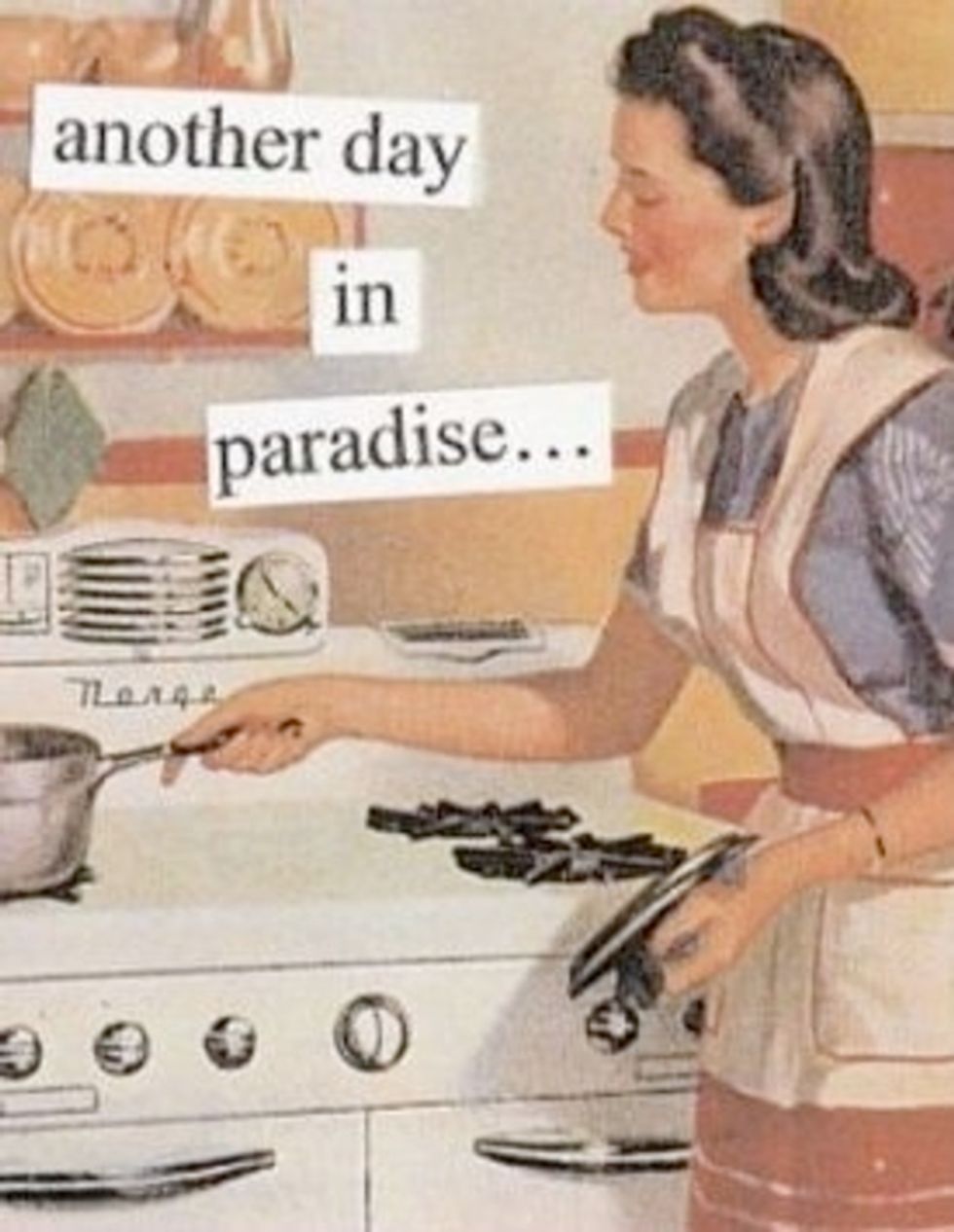In the poem “What’s That Smell in the Kitchen?” by Marge Piercy, women around the United States wage war, not with artillery, but with food. The poem expresses the anger and frustrations that women struggle to cope with in their everyday lives. The distress that women are in and their oppositions against their husbands is prevalent throughout the poem. This subtle rebellion is portrayed through the meals they cook for their husbands because it is a common factor between all the wives that they are expected to cook and clean and obey the common expectations forged by society.
The burning of dinners is a symbol of the women’s protests. Women all over America “are burning food” (5-6) because they are upset with their forced roles in society. The burnt “lambchops in Peoria” (2) and “steak in Chicago” (2) are more than mere cuisines. They are the embodiment of the anger the women have building up inside. The extent of such pent up frustrations are furthered through the hostile scenarios described regarding what a woman’s husband actually deserves to be served.
The speaker has been dealing with these emotions for an extended amount of time and her patience is wearing thin as her rage begins “spewing out missiles of hot fat” (8). The metaphor not only reveals the speakers discontent but also helps to create the mood. The atmosphere is tense and her tone is filled with ferocity. This provides the reader with a clear understanding of the speaker’s attitude because she makes it apparent that she is fed up with how she is treated, along with women as a whole.
The domestic unrest among women around the country is explained through the use of dinner as a weapon. The poem is a representation of those trapped in a role they did not wish to assume, but most tolerate day by day. Throughout the poem, Piercy addresses the depths that a woman’s irritation can reach when put under the pressure of unwanted societal roles.What's That Smell in the Kitchen?
by Marge Piercy
All over America women are burning dinners.
It’s lambchops in Peoria: it’s haddock
in Providence; it’s steak in Chicago:
tofu delight in Big Sur; red rice and beans in Dallas.
All over America women are burning food they’re supposed to bring with calico smile on
platters glittering like wax.
Anger sputters in her brainpan, confined but spewing out missiles of hot fat.
Carbonized despair presses like a clinker
from a barbecue against the back of her eyes.
If she wants to grill anything, it’s
her husband spitted over a slow fire.
If she wants to serve him anything it’s a dead rat with a bomb in its belly
ticking like the
heart of an insomniac.
Her life is cooked and digested,
nothing but leftovers in Tupperware.
Look, she says, once I was roast duck
on your platter with parsley but now I am Spam.
Burning dinner is not incompetence but war.




















 sunrise
StableDiffusion
sunrise
StableDiffusion
 bonfire friends
StableDiffusion
bonfire friends
StableDiffusion
 sadness
StableDiffusion
sadness
StableDiffusion

 purple skies
StableDiffusion
purple skies
StableDiffusion

 true love
StableDiffusion
true love
StableDiffusion
 My Cheerleader
StableDiffusion
My Cheerleader
StableDiffusion
 womans transformation to happiness and love
StableDiffusion
womans transformation to happiness and love
StableDiffusion
 future life together of adventures
StableDiffusion
future life together of adventures
StableDiffusion





















